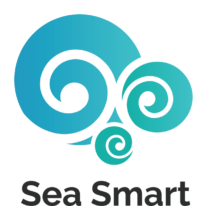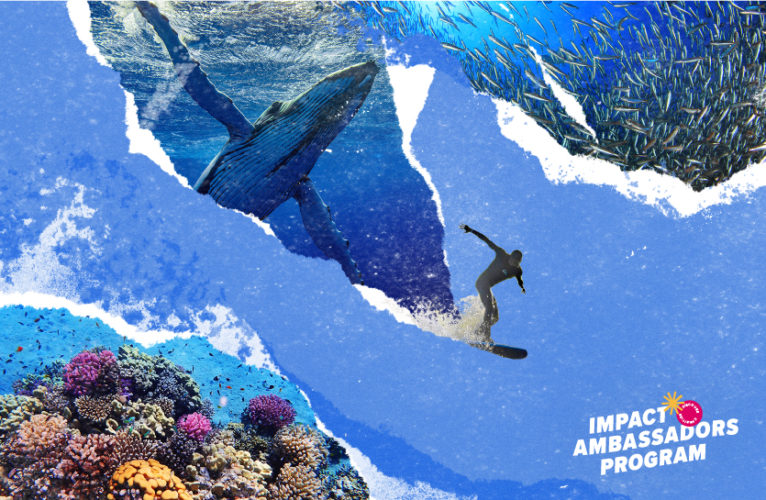How can you help protect the world’s oceans?
June 02, 2021
6 min read
World Ocean Day is here and this is the second year in the United Nations Decade of Ocean Science for Sustainable Development.
It’s the perfect time to make small, ocean-friendly changes in your daily life for big long-term impacts.
According to the United Nations, oceans cover three-quarters of the earth’s surface and 97% of the earth’s water. Unfortunately, “roughly 80% of marine and coastal pollution originates on land—including agricultural run-off, pesticides, and plastic pollution”. The UN Decade of Ocean Science and World Ocean Day are opportunities for the world to come together to deliver ocean science and management, and to create solutions for our oceans.
What is the United Nations doing?
The UN has outlined some of innovative ways the decade will be conducting and using ocean science:
- Encouraging inclusive and participative approaches to executing science: Citizen science, data sharing, creating a science community are some examples.
- Building a better dialogue about the ocean: Combining science with other disciplines, like social sciences and Indigenous knowledge.
- Closing gaps to share knowledge and information around the world.
- Giving value to the ocean: Shifting people’s values to see that the ocean has economic, cultural, and security value.
- Promoting ocean literacy by developing innovative ways to communicate ocean science.
- Seeking new innovative funding systems for the ocean.
What is Sea Smart doing?
At Sea Smart, we are also creating solutions to better our oceans. We educate, inspire, and empower people of all ages around the world to take action to protect our oceans. Our overall vision and purpose reflect the visions of this new decade.
The education of our youth and the empowerment of kids to love and protect the ocean will greatly impact the future of our oceans. This decade is the opportunity to deliver science and education for the ocean our world needs.
This decade is the opportunity to deliver science and education for the ocean our world needs.
Since our inception in 2016, Sea Smart has inspired hundreds of thousands of people across Canada—and the world—to become ocean heroes. We empower youth, families, teachers, and communities to connect with nature and make the world a better place.
Since 2016, we have taught over 30,000 people through in-person programs and educated almost 500,000 students in over 20 countries. Sea Smart is dedicated to continuing to inspire people around the world to love and protect our oceans.
What can you do?
So what can you and your family do to help protect the ocean this year, and in the years to come? Sea Smart has put together a list of ocean-friendly tips to help lower your family’s environmental footprint, and help protect our oceans.
1. Learn more about the ocean.
Sea Smart’s mission is to inspire people to love and protect our oceans, and we know first-hand the impact that knowledge can have on empowering people to protect our oceans. Take a trip to a local aquarium (or tour them online during COVID), try out one of our online courses or free resources, or get out and visit our ocean’s first-hand! Sea Smart created an Explore The Shore Challenge for hands-on educational fun for the whole family.
2. Conserve water where you can.
It may seem obvious, but conserving water can help reduce your family’s environmental impact. We recommend encouraging everyone to turn off the water when they brush their teeth or making an effort to take quick showers. Other water-related tips include using a reusable water bottle, and using pasta water (only if it is unsalted) to water your plants!
3. Eat sustainable seafood.
We know it can be hard to know what fish are sustainable and okay to eat, so we recommend learning more about the eco-certification of seafood and supporting small, well-managed wild fisheries. You can also choose to eat fish that are abundant, rather than choosing species that are at risk of being overfished.
4. Reduce your single-use plastic intake, and reuse items whenever you can.
We recommended encouraging your family to find new uses for used or old items, like turning old clothes into pillow cases or making art with any old items. It’s also a great way to encourage creativity and off-screen time while teaching your family another way to recycle. Choosing reusable items is also a great way to help protect our oceans from plastic pollution.
5. Invest in organizations that are protecting our oceans.
Become a monthly donor of organizations like Sea Smart, or volunteer/participate in neighbourhood or coastal cleanup projects. You can also foster a love for oceans in your family by signing your kids up for educational summer camps or courses from Sea Smart, local aquariums, and other organizations in your city!
We understand most of us don’t have the time or resources needed to make the most informed giving decisions. That’s why we have launched the #ChooseYourImpact Campaign, connecting you to passionate changemakers and thought leaders—called Impact Ambassadors.
To verify the effectiveness of the charities selected, we have partnered with the Vancouver Social Value Fund (VSVF)—a youth-led fund created in partnership with the Vancouver impact community—and the Social Innovation Academy—a learning initiative led by UBC Sauder Centre for Social Innovation & Impact Investing (SauderS3i).
As a donor, you can give with confidence to support a range of causes including access to food security, seniors’ wellbeing, violence reduction, and more. As Impact Ambassadors join, we will be adding more high-impact charities and causes that you can support with just a few clicks.


